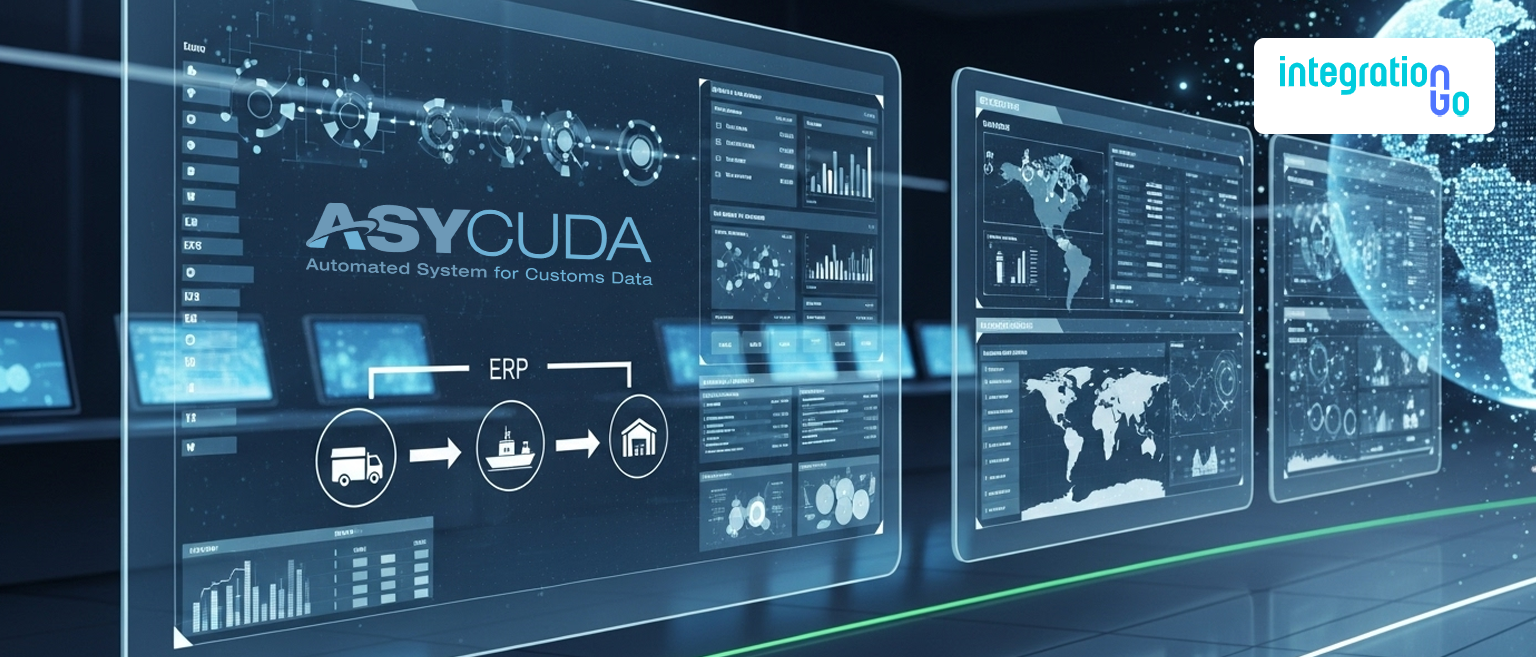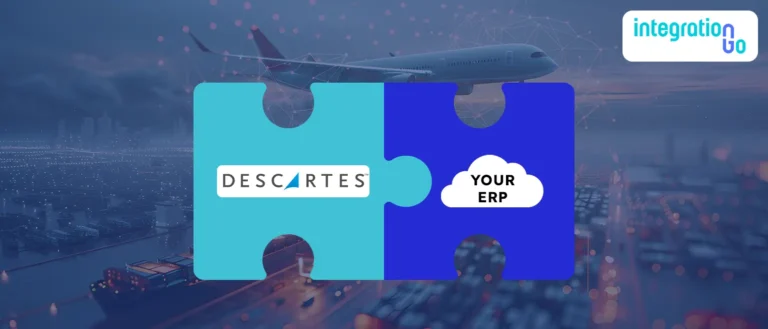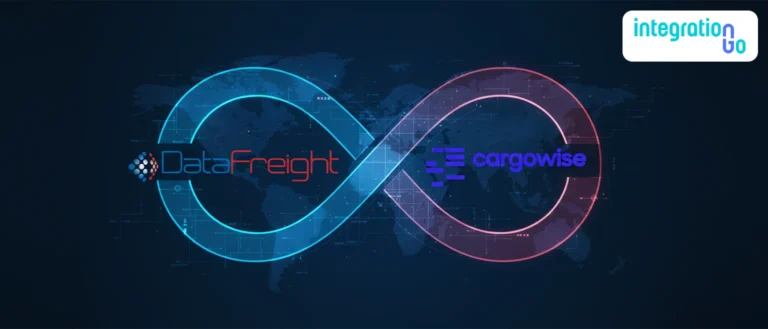“Borders divide countries—but data should never divide supply chains.”
Global trade keeps the world economy moving, transferring trillions of dollars in goods each year. But despite all of our advanced logistics technologies, there is one area where everything can go wrong, which is customs clearance.
Anyone who’s worked in freight forwarding or supply chain operations knows the pain. You’ve planned the shipment, secured carriers, and coordinated warehouses, only to see containers sitting at the port because of a customs hiccup. A missing document, a mistyped HS code, or a compliance error can keep cargo stuck for days.
While governments worldwide have modernized customs using digital platforms like ASYCUDA, there’s still a huge gap between these customs systems and the everyday tools logistics professionals rely on. And that’s where we, as integration specialists, make things easier through customs integration.
What Exactly is ASYCUDA?
ASYCUDA, short for Automated SYstem for CUstoms DAta, was developed by the United Nations Conference on Trade and Development (UNCTAD). It’s become the go-to digital customs management system for over 100 countries worldwide.
ASYCUDA replaces old methods, paper-heavy processes with electronic declarations, automated duty calculations, and risk analysis. Customs authorities use it to manage import/export operations, streamline document checks, and generate real-time reporting.
But for logistics businesses, ASYCUDA often remains a separate world, a government portal that requires logging in, manually typing in shipment details, and waiting for clearance updates. It’s digital, yes, but still painfully disconnected from the rest of a freight forwarder’s operation.
Why Manual Processes Slow You Down?
Imagine moving hundreds of shipments each month. Every time you have to enter cargo details into ASYCUDA manually, you’re duplicating work you’ve already done in your ERP or logistics platform. That’s not only a waste of time but a breeding ground for mistakes.
All it takes is one wrong decimal point in the declared value, a mismatched HS code, or an incorrect country-of-origin note, and suddenly your cargo faces delays, inspections, or hefty fines.
The impact isn’t just operational. Demurrage fees stack up. Warehousing costs rise. And worst of all, your customers start losing confidence because their freight isn’t moving as planned.
How ASYCUDA’s Customs Integration is Revolutionary?
This is where ASYCUDA’s Customs integration becomes a game-changer. Instead of operating as an isolated government portal, ASYCUDA can connect directly to your ERP, TMS, or freight management software, like CargoWise, SAP, Oracle, Infor, or any modern logistics system.
With integration in place, the moment you create a shipment in your ERP, the essential details, like commodity codes, product descriptions, declared values, and quantities, can automatically populate customs declarations in ASYCUDA.
No more re-keying data. No more errors from manual entries. And far fewer surprises when customs reviews your documentation.
Faster Clearance Means Lower Costs
One of the biggest wins of integrating ASYCUDA with your systems is speed.
Customs declarations submitted electronically and validated by ASYCUDA can be cleared much faster than traditional manual processes. Integration ensures your data is formatted correctly before submission, reducing the risk of errors that trigger delays or inspections.
When customs releases your shipment, ASYCUDA instantly sends a clearance message. With integration, that clearance status updates automatically in your ERP or TMS, giving your team real-time visibility.
And the outcome? You’re not left guessing whether your shipment is cleared. And your customers aren’t calling every hour for updates.
Improved Compliance and Peace of Mind
International trade regulations aren’t getting simpler. Every country has unique requirements, different tariff rates, documentation standards, and compliance checks. And they can change overnight due to new trade agreements or geopolitical events.
Customs integration helps keep you compliant. Data validation ensures that HS codes, values, and tax rates match the current standards. Any inconsistencies can be flagged before submission, avoiding costly mistakes or regulatory penalties.
Plus, because ASYCUDA follows global standards like the Harmonized System for classification and the WTO’s valuation rules, integrating it with your systems ensures you’re speaking the same language customs authorities understand worldwide.
Better Visibility for Everyone
Another massive benefit of ASYCUDA integration is transparency. When your ERP, TMS, and customs systems talk to each other, you have a single source of truth.
Your operations team can see precisely when customs has cleared a shipment. Your finance team knows when duties and taxes have been assessed. And your customer service team can confidently update clients without waiting for someone to check a government portal.
This level of real-time visibility isn’t just operationally smoother, it builds trust with your customers, who increasingly demand transparency and speed.
A Smarter Way to Grow Globally
As logistics businesses expand into new markets, they encounter a patchwork of customs regulations. What’s acceptable in one country may be rejected in another.
ASYCUDA’s flexibility is one of its strengths, it’s deployed worldwide but adaptable to local customs rules. Integration ensures that no matter where you operate, you have a consistent, automated process for managing customs clearance.
This kind of scalability makes ASYCUDA’s Customs integration a strategic asset for freight forwarders, 3PLs, and logistics providers looking to grow internationally without drowning in paperwork and compliance chaos.
Why Work with an Integration Partner?
It’s important to remember that integrating ASYCUDA is more than simply making a shift. It involves technical know-how, regulatory expertise, and a deep understanding of logistics workflows.
Working with a partner like IntegrationGo means you’re not alone. We handle:
- Data mapping between your ERP and ASYCUDA
- API or EDI configurations
- Compliance validations to match local regulations
- Monitoring and troubleshooting post-launch
With a solid partner, integration becomes seamless and low-risk, allowing you to stay focused on running your business.
Conclusion
Customs clearance shouldn't ultimately be the weak link in your supply chain. ASYCUDA’s Customs integration turns it into a transparent, efficient, and automated process that helps you move freight faster, avoid costly mistakes, and deliver exceptional service to your customers.
If you’re serious about competing in the modern global market, it’s no longer enough to manage customs separately from your core logistics systems. Integration is the future, and the competitive edge you need.
Ready to simplify your customs operations and unlock true end-to-end visibility? Let’s talk about how ASYCUDA’s Customs integration can transform your logistics. Book a free consultation with IntegrationGo today, and take the first step toward a more connected, compliant, and efficient supply chain.




